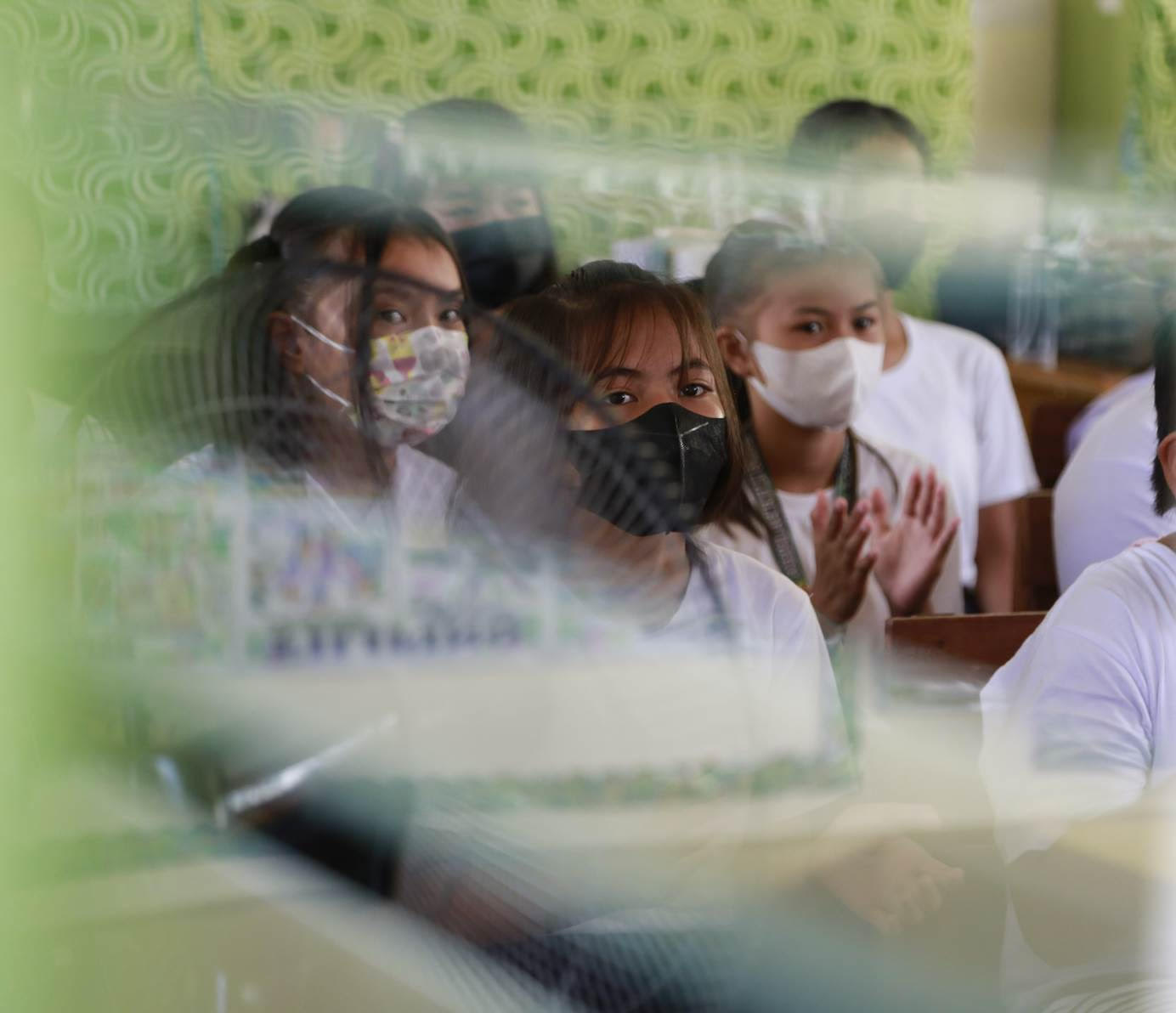Hot days, hard lessons: Students, teachers share health risks, learning disruptions amid extreme heat
This week, high temperatures recorded in various parts of the country have prompted over 5,000 schools to suspend face-to-face classes, affecting more than 3.6 million students who have shifted to alternative delivery modes (ADM).

As the number of affected schools and students continues to rise, Save the Children Philippines has called upon the government to address climate change urgently, aiming to ensure the health, safety, and continuity of learning among Filipino learners.
READ:
https://mb.com.ph/2024/4/5/dep-ed-schools-affected-by-extreme-heat-now-up-to-5-288
"Educators and local authorities have been forced to take the extreme decision to shut down hundreds of schools because this extreme heat makes it difficult for children to concentrate in the classroom and puts their health at risk," said Save the Children Philippines Chief Executive Officer (CEO) Alberto Muyot.
This week, many areas experienced temperatures surpassing 42°C, resulting in the suspension of thousands of onsite classes nationwide.
READ:
The Philippine Atmospheric, Geophysical, and Astronomical Services Administration (PAGASA) attributed these recent heatwaves to El Niño.
"We need urgent action now to limit warming to a maximum of 1.5°C above pre-industrial levels," emphasized Muyot, a former Undersecretary of the Department of Education (DepEd). "Failing to do this will have dramatic consequences for children's health, safety, and well-being."
Climate change. impact of extreme heat
Save the Children Philippines noted that children's bodies are still "developing" and are not as capable of regulating internal body temperature as adults, making them "more susceptible" to heat-related illnesses such as asthma, allergies, cardiovascular disease, and respiratory problems.
The group highlighted that climate change has been raising global temperatures and causing unprecedented heatwaves worldwide, with more countries experiencing hotter days more frequently.
"Climate change and poverty threaten one-third of the world's children, or 774 million, simultaneously," Save the Children Philippines emphasized.
Meanwhile, children and youth advocates expressed concern about the impact of climate change on their education and quality of life.
Rohj Olivo, a 17-year-old climate activist, expressed concern about the effects of the hot weather on education.
"In the previous four years, we have seen changes in the school calendar and mode of delivery due to the pandemic and in response to the changing environment, on top of all the class suspensions due to recurrent typhoons. We're expecting another calendar adjustment as a result of El Niño," Olivo said.
Teachers, students suffer
Carla, a 15-year-old from Navotas City, shared her firsthand experience.
"Before, I used to walk home to save on fare, but now I can't because of the heat," she said. "Commuting is difficult; sidewalks are tiny, and it's really hot! Inequality exacerbates the effects of climate change," she added.
She noted that big countries and corporations contribute to rising temperatures, leaving those with little means to struggle the most, and thus, they must be held accountable.
Teachers from Eastern Samar and Cotabato City also shared how the extreme heat in the classroom affects their students' health, focus, and the entire learning experience.
"Several of our students are suffering from colds and coughs," said Teacher Geralyn. "If the heat wave persists, we will need to adopt modular learning so that the children can wear light clothing and stay hydrated at home," she added.
Teacher Perla suggested that schools prepare for El Niño by providing potable water in each classroom. She observed that the classrooms lacked sufficient ventilation, and a rising heat wave could make children restless, unable to concentrate and feel ill.
Teacher Nur of Cotabato City also emphasized the importance of protecting the health of both students and staff during this hot season.
"We highly recommend water breaks in each lesson to keep children hydrated, ensuring well-ventilated rooms, and avoiding afternoon classes," Teacher Nur said. "We schedule modular lessons whenever possible, especially during peak heatwaves," she added.
RELATED STORY:
https://mb.com.ph/2024/4/4/dep-ed-urged-to-adopt-the-june-march-calendar-for-incoming-school-year